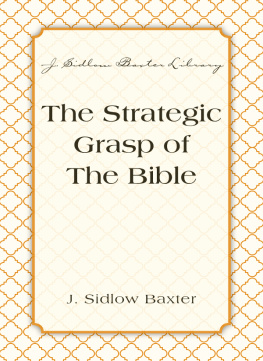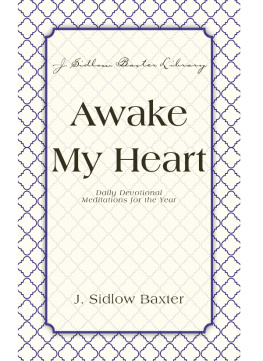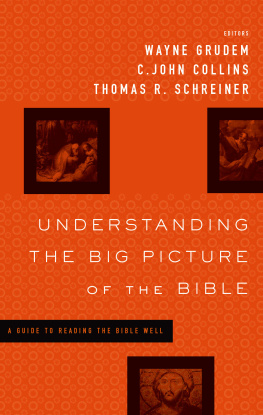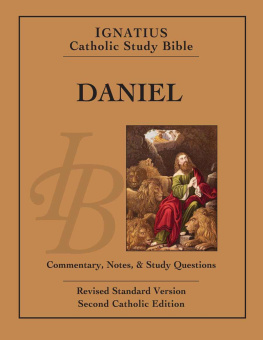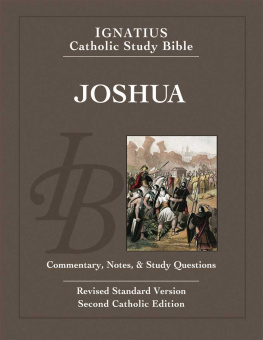wife of the late beloved Reverend Professor John Henry Strong; in expression of thankfulness to God for her long, gifted, faithful ministry of Bible-teaching, in colleges, groups and classes, through the years, with imperishable impression upon her students, not a few of whom are now in full-time Christian service around the world, and all of whom thank God upon every remembrance of her.
I HAVE entitled this book, The Strategic Grasp of the Bible, and my hope is that those who read it will concur that I have done so with ample justification. That word, strategic, is primarily a military term (from the Greek strategos, a general). It has to do with generalship, or the science and art of conducting a campaign. It carries with it the thought of sizing up a situation, perceiving the determining factors in it, and seizing the points of vantage so as to achieve success.
In our study of the Bible we need a perspective alertness to those critical factors, figures, pronouncements, turning-points, which have a pivotal or crucial relationship to the rest of written revelation; so that by recognizing their strategic importance we may the more ably grasp the message of the Bible as a whole, and the more effectively get it over to the people of our own day.
I cannot hope to carry with me all who may chance to scan the following pages. In these days when the officialdoms of our major Protestant denominations seem chaotically irregular in their attitude to the inspiration and authority of the Bible, views are so varied, and unevangelical prejudices so deep, that a book such as this can seem like an ebullition of old-fashioned naivete to some, especially to a certain ilk of theological liberals who are so modernly intellectual that they can believe anything rather than the older view of the Bible.
Especially in Britain, these days, when one glories in the plenary inspiration of the Bible there is the clinging feeling of being a voice crying in the wilderness. Yet it was the older view of the Bible, more than all else, which lifted Britain to a leadership and glory which were conspicuous at the beginning of our twentieth century, but which now, alas, have pathetically deteriorated. The liberalist view of the Bible has done nothing for Britannia but weaken and befuddle her. When will the eyes of leaders and people be opened to see this? When will there be another generation of New Testament prophets who will preach the Bible again with the old-fashioned but reverently intellectual certitude of the famous Britishers, Spurgeon and Parker and Liddon and MacLaren and General Booth? Britain might even yet recover some moral leadership if her princes and prophets and people were to bow again before the Bible as the inspired and all-commanding Word of God.
I have always advocated unfettered, individual freedom in the interpretation of the Bible. With every fibre of conviction I subscribe to that original Protestant tenet, the right and duty of private interpretation. That liberty has resulted in a basic doctrinal unanimity of free men which is a distinguishing merit of Protestant Christianity, and is infinitely preferable to the Roman churchs dictatorial imposition of ecclesiastical dogma upon a hitherto gagged laity. The sorry-looking internecine disunity of latter-day Protestantism is not due to freedom in the interpretation of the Bible, but to a breakdown of belief in the inspiration of the Bible. Until more recent times, among the main bodies of Protestant Christendom, there was a healthful diversity in unity; a useful denominational diversity on matters non-fundamental, going with a recognised oneness of conviction as to the Bible itself and the foundation truths of the evangelical faith. The deadly disruptions of today are due to the rationalistic spoliation of the Bible by the German-originated higher critics and their successors, issuing in the New Theology, then Liberalism, and then Neo-Orthodoxy. Much as I believe in freedom of interpretation, I aver that Protestant Christianity in general will never regain its lost initiative and dynamic force until there is a re-avowed unity of conviction that the Bible, solely and wholly, is the plenarily inspired, inerrant, and utterly authoritative Word of God.
I am not forgetting the seven thousand in Britain who have not bowed the knee to Baal, nor the millions of enthusiastic evangelical scholars, ministers, and church members in U.S.A. and Canada, not to mention other parts of the English-speaking world. Among them, at least, a book like this can still find a welcome, and may possibly exercise a useful ministry even though its circulation may not be unusually extensive. That the following pages may indeed have such a ministry is the authors sincere desire, to the praise of Him whom, having not seen, we love.
J.S.B.
Away back on June 17th, 1843, Daniel Webster, one of the weightiest thinkers and possibly the finest orator America ever produced, delivered a stirring speech at the completion of the Bunker Hill Monument. Referring to the Pilgrim Fathers and the Bible, he said, They brought with them a full portion of the riches of the past, in science, art, morals, religion and literature. The Bible came with them. The Bible is a book of faith and a book of doctrine; it teaches man his own responsibility, his own dignity, and his equality with his fellow man.... I believe that the Bible is to be understood and received in the plain obvious meaning of its passages, since I cannot persuade myself that a book intended for the instruction and conversion of the whole world should cover its meaning in any such mystery and doubt that none but critics and philosophers can discover it.
W E are to think together, in this series of studies, about the presence and the marvel of structural design in the Bible. As a preliminary, it is needful to make certain observations regarding the right way of approach to such a subject.

